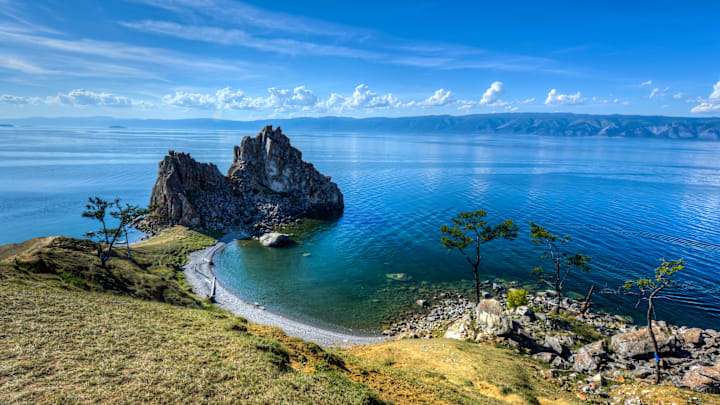Any natural body of inland water that feels bigger than a pond can constitute a lake. The lakes of the world vary greatly, with some sites closely resembling seas in many ways. This applies to Lake Baikal in southeast Siberia. The Unesco World Heritage Site is the deepest lake on Earth, measuring 5387 feet at its maximum depth.
Lake depth can be measured in two ways: By the distance from the surface to its deepest point, and by the average depth of the lake as a whole. The Russian lake holds the world record in both these categories. Its mean depth is 2486 feet, which is greater than the Burj Khalifa skyscraper in Dubai. If two Burj Khalifas were stacked on top of each other at Baikal's deepest point, less than 50 feet of the top spire would poke past the lake's surface.
Lake Baikal boasts another impressive distinction: It's approximately 25 million years old, which means it's the oldest lake on the planet. The depth and age of this freshwater body have allowed a variety of organisms to evolve and flourish in isolation. Half of the 60 fish species that live there can't be found anywhere else on Earth, earning the body the title the "Galapagos of Russia." Baikal is also home to the nerpa, the only exclusively freshwater seal species known to science.
After supporting a thriving ecosystem for millions of years, the world's deepest lake has come under threat in recent decades. Development on the lake's shores has resulted in pollution that harms the lake's unique plant and animal populations. Local conservationists have fought to spare the site from some of the most concerning development projects, including plans for a nearby oil pipeline and a uranium plant, but protecting the natural wonder is an ongoing battle.
